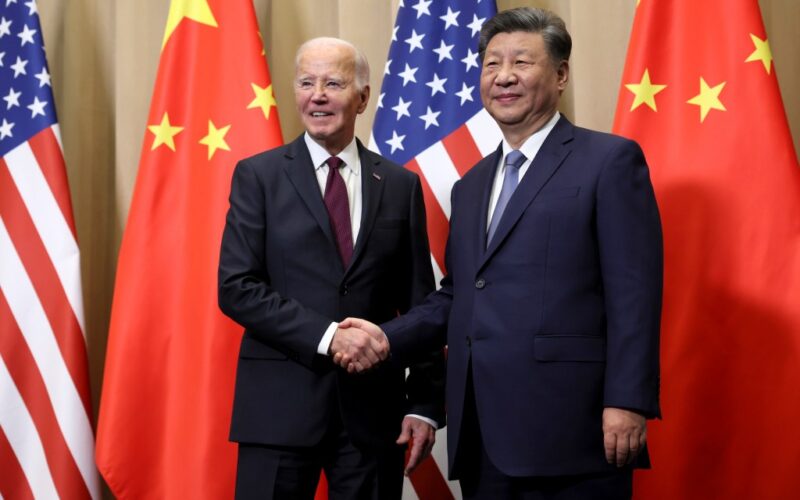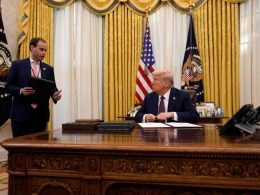The U.S.-China trade war, which began in 2018 under the first Trump administration and continued under President Biden, has reshaped global economic dynamics and intensified geopolitical competition between the two superpowers. While the trade war was initially framed as a strategy to protect American industries and jobs, its unintended consequences have been far-reaching.
Beyond the economic toll, the rivalry has fueled a rise in anti-Asian hate across the United States, while simultaneously hurting the U.S. economy and eroding corporate profits. These outcomes highlight the complex and often counterproductive nature of geopolitical competition in an interconnected global economy.
The U.S.-China trade war has exacerbated tensions between the two nations, often spilling over into public sentiment. Rhetoric framing China as an economic adversary and a threat to American prosperity has contributed to a toxic environment that has disproportionately affected Asian-Americans.
The COVID-19 pandemic, which originated in China, further amplified this dynamic, with political leaders and media outlets frequently using terms like “China virus” or “kung flu.” This rhetoric has stoked xenophobia and led to a surge in anti-Asian hate crimes across the country.
While the trade war was intended to bolster American industries, it has had the opposite effect in many cases. Tariffs on Chinese goods, which were meant to protect domestic manufacturers, have instead increased costs for American businesses and consumers.
According to a study by the U.S.-China Business Council, the trade war has cost the U.S. economy an estimated $316 billion in lost GDP and nearly 250,000 jobs by the end of 2022. These losses are particularly pronounced in industries reliant on Chinese imports, such as electronics, automotive, and agriculture.
The trade war has also taken a toll on corporate America. Many U.S. companies with significant exposure to China, such as Apple, Intel, and Tesla, have seen their supply chains disrupted and their profit margins squeezed. Tariffs on Chinese imports have forced companies to either absorb higher costs or pass them on to consumers, both of which negatively impact profitability.
Moreover, the uncertainty surrounding U.S.-China relations has made it difficult for businesses to plan for the future. Companies are hesitant to invest in long-term projects or expand operations when the regulatory environment remains volatile. This uncertainty has stifled innovation and growth, particularly in industries like technology and manufacturing, where China plays a critical role in the global supply chain.
An often-overlooked consequence of the rise in anti-Asian hate is its impact on the contributions of Asian-Americans to corporate America and the broader economy. Asian-Americans are one of the most educated and economically successful demographic groups in the United States, with significant representation in fields such as technology, medicine, engineering, and finance. However, the hostile environment created by anti-Asian rhetoric and violence has stifled their ability to contribute fully.
Many Asian-American professionals report feeling marginalized or undervalued in the workplace, leading to decreased job satisfaction and productivity. In some cases, they face overt discrimination or microaggressions that hinder their career advancement. This not only affects individual livelihoods but also deprives corporations of the diverse perspectives and innovative ideas that Asian-American employees bring to the table.
The unintended consequences of the U.S.-China trade war underscore the need for a more nuanced approach to geopolitical competition. While it is important to address legitimate concerns about China’s trade practices and geopolitical ambitions, the current strategy has proven to be counterproductive. Instead of resorting to tariffs and decoupling, the U.S. should focus on strengthening its own economic competitiveness through investments in innovation, infrastructure, and education.
In conclusion, the U.S.-China trade war has had far-reaching consequences that extend beyond economics. The rise in anti-Asian hate, the strain on the U.S. economy, the erosion of corporate profits, and the stifling of Asian-Americans’ contributions to corporate America highlight the need for a more balanced and strategic approach to managing the relationship between the two nations.
By prioritizing dialogue and cooperation over confrontation, the U.S. can protect its economic interests while fostering a more inclusive and prosperous society.
Wang is founder and president of the Asian American Business Development Center.








